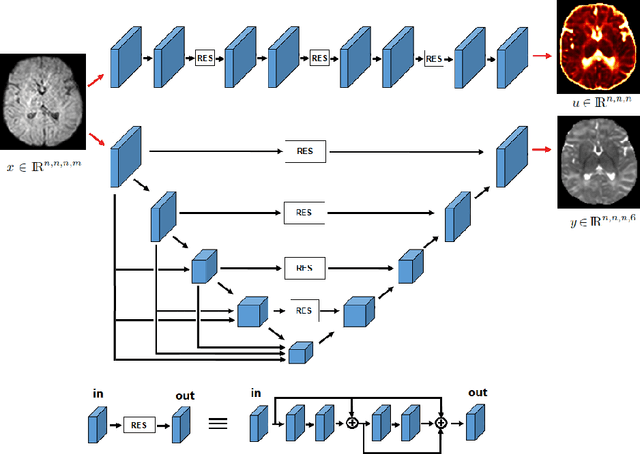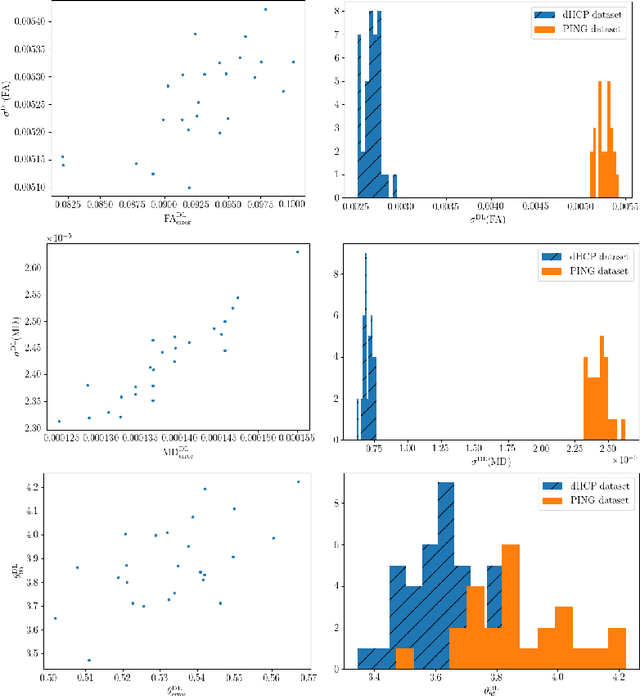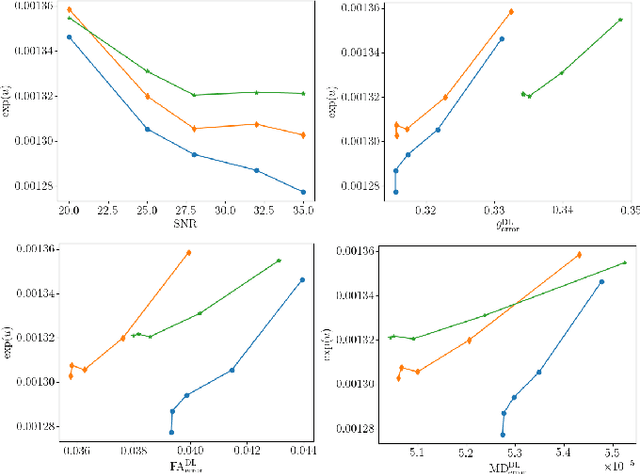Calibrated Diffusion Tensor Estimation
Paper and Code
Nov 21, 2021



It is highly desirable to know how uncertain a model's predictions are, especially for models that are complex and hard to understand as in deep learning. Although there has been a growing interest in using deep learning methods in diffusion-weighted MRI, prior works have not addressed the issue of model uncertainty. Here, we propose a deep learning method to estimate the diffusion tensor and compute the estimation uncertainty. Data-dependent uncertainty is computed directly by the network and learned via loss attenuation. Model uncertainty is computed using Monte Carlo dropout. We also propose a new method for evaluating the quality of predicted uncertainties. We compare the new method with the standard least-squares tensor estimation and bootstrap-based uncertainty computation techniques. Our experiments show that when the number of measurements is small the deep learning method is more accurate and its uncertainty predictions are better calibrated than the standard methods. We show that the estimation uncertainties computed by the new method can highlight the model's biases, detect domain shift, and reflect the strength of noise in the measurements. Our study shows the importance and practical value of modeling prediction uncertainties in deep learning-based diffusion MRI analysis.
 Add to Chrome
Add to Chrome Add to Firefox
Add to Firefox Add to Edge
Add to Edge